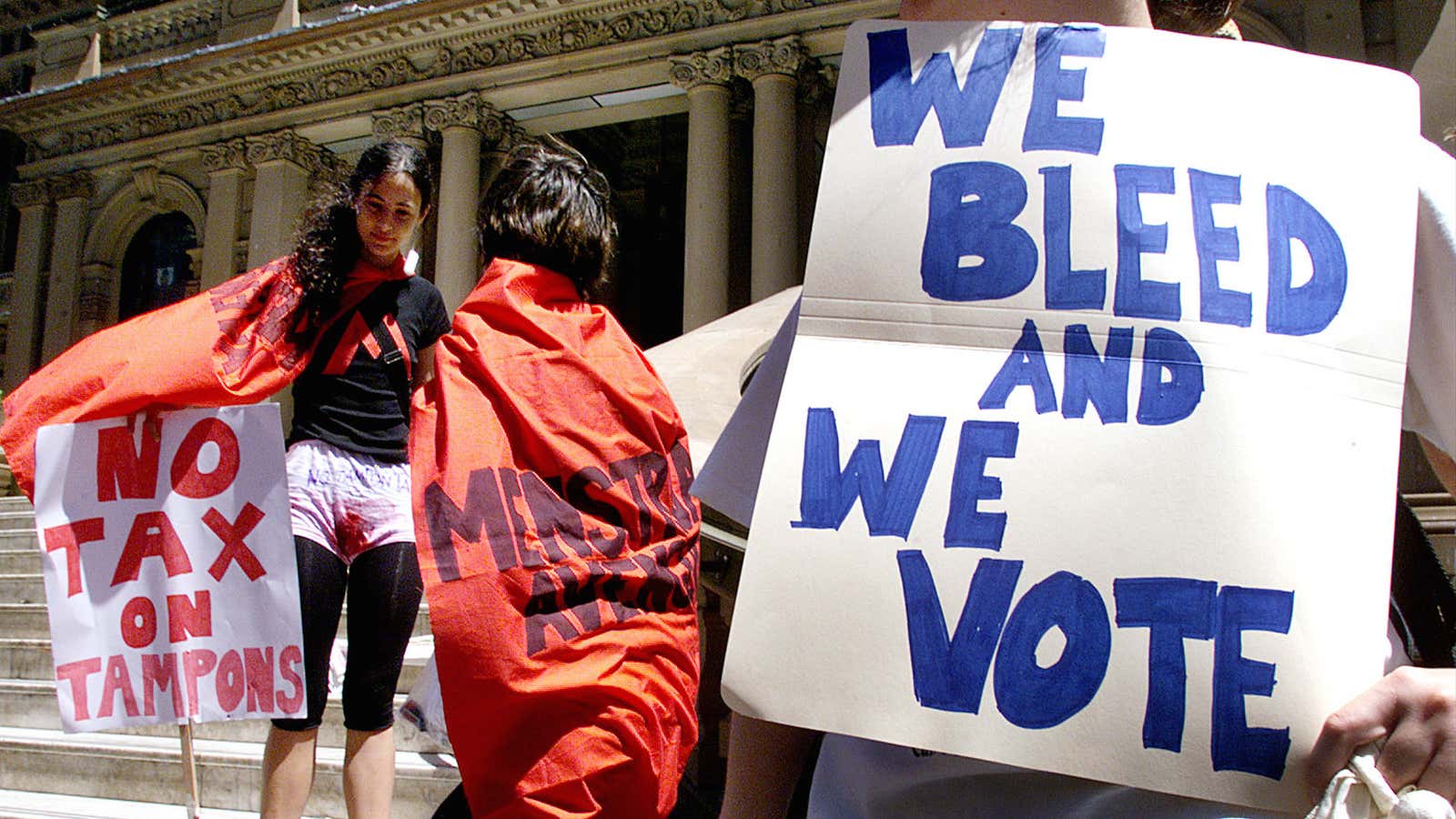For the past twelve years, Australian women have had to pay a little extra every time they ran to the store for tampons or sanitary pads. The 10% bump is a result of the country’s Goods and Services tax (GST), implemented in 2000 by conservative prime minister John Howard’s government.
While the GST applies to the vast majority of products sold in Australian, the fact that tampons were included—even as other health-related items, including condoms and sunscreen, are exempt—has been a source of ongoing controversy.
And the government has appeared unable to calm the growing frustration. Calling tampons a “personal hygiene product rather than a product used to treat an illness or a disease or a disability,” the tax committee defends its decision using the rather lackluster reasoning that the tax was unlikely to stop consumers from purchasing what many women view as rather essential products.
This may be changing, however. On May 25, an outraged university student named Subeta Vimalarajah presented Australian Treasurer Joe Hockey with a petition of over 100,000 signatures.
“I’ve definitely had the experience of going to the supermarket to buy a box of tampons and being frustrated that I need to pay for them, but more significantly that the government is making a profit on my period,” Vimalarajah wrote in an essay for the BBC. “It’s one thing to make everything taxable, but it’s different when the government has identified ‘important’ health goods as exempt, but refuses to acknowledge sanitary products as in this category.”
Apparently impressed, Hockey said in a brief statement March 26 that his office is open to working with state and local governments to finally exempt tampons from the tax, pending a bit of official number crunching.
Australia is not the only place debating if and how tampons and other personal hygiene products should be taxed. In the UK, tampon prices include a 5% Value Added Tax (VAT) while in the US, states are free to decide individually whether or not to apply sales taxes to the hygiene items.
